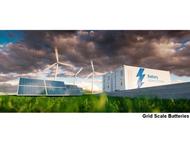Demonstration Reporting - ORIGINAL CONTENT
- By:
- Edward A. Reid Jr.
- Posted On:
- Apr 5, 2022 at 7:00 AM
- Category
- Energy Policy, Climate Change
This commentary suggests a reporting format for the renewable plus storage demonstration discussed in the prior two commentaries.
|
Pre-demonstration electricity generation infrastructure: |
|||||
|
Fuel |
Rated Capacity (MW) |
Capacity Factor (%) |
Annual Generation (MWH) |
||
|
Coal |
|||||
|
Natural gas (CCT) |
|||||
|
Natural gas (SCT) |
|||||
|
Nuclear |
|||||
|
Other |
|||||
|
Total |
|||||
|
Peak Demand: |
|||||
|
Capacity Reserve Margin: |
|||||
|
Initial demonstration electricity generation infrastructure: |
|||||
|
Source |
Rated Capacity (MW) |
Capacity Factor (%) |
Annual Generation (MWH) |
||
|
Wind |
|||||
|
Solar |
|||||
|
Nuclear |
|||||
|
Other |
|||||
|
Total |
|||||
|
Design Peak Demand: |
|||||
|
Design Capacity Reserve Margin: |
|||||
|
Initial demonstration electricity storage infrastructure: |
|||||
|
Storage |
Rated Capacity (MWH) |
Rated Discharge (MW) |
|||
|
Short Duration |
|||||
|
Intermediate Duration |
|||||
|
Long Duration |
|||||
|
Total |
|||||
|
Demonstration electricity demand growth (MW): |
|||||
|
Demonstration electricity consumption growth (MWH): |
|||||
|
Initial demonstration electricity storage infrastructure: |
|||||
|
Source |
Rated Capacity (MW) |
Capacity Factor (%) |
Annual Generation (MWH) |
||
|
Wind |
|||||
|
Solar |
|||||
|
Total |
|||||
|
Demonstration electricity storage infrastructure additions: |
|||||
|
Storage |
Rated Capacity (MWH) |
Rated Discharge (MW) |
|||
|
Short Duration |
|||||
|
Intermediate Duration |
|||||
|
Long Duration |
|||||
|
Total |
|||||
|
Demonstration annual withdrawals from storage: |
|||||
|
Storage |
(MW) |
||||
|
Short Duration |
|||||
|
Intermediate Duration |
|||||
|
Long Duration |
|||||
|
Total |
|||||
|
Demonstration emergency capacity requirements: |
|||||
|
Total events (#) |
|||||
|
Peak emergency demand (MW) |
|||||
|
Total emergency consumption (MWH) |
|||||
|
Pre-demonstration customer electricity bills ($/MWH): |
|||||
|
Demonstration customer electricity bills ($/MWH)(inflation adjusted): |
|||||
This proposed demonstration project has several important objectives:
- Create a unique renewable plus storage service area
- Force design of a standalone capable renewable plus storage grid
- Highlight the critical nature of electricity storage in this grid
- Highlight the evolving status of grid storage technology
- Highlight the sensitivity of this grid to daily and seasonal weather variations
- Document in and out storage losses in real storage systems
- Document inversion system losses in real grid operation
- Demonstrate the advantages of storage at the generation sites
- Establish the real cost of electricity in a renewable plus storage grid
- Document the number and magnitude of grid emergencies
- Document the effects of the transition to electric vehicles on the grid
- Document the effects of the transition to electric appliances and equipment
- Document the effects of the transition to electric industrial processes
The information collected using the form above should be available to the general public on a website designed to provide easily understandable access to information on the performance of the renewable plus storage grid demonstration, since this is the intended future national electric grid. The project should be treated as a learning experience for grid designers and operators, but also for customers served by the grid.
It is regrettable that the demonstration must begin with largely pseudo-storage, rather than physical storage systems. However, it is not possible to design and operate a reliable grid based on renewable generation without storage. The proliferation of renewable generation with conventional generation support has created the impression that renewable generation system design can be simple and inexpensive. However, in a fossil-free generation system, additional renewable generation plus storage must replace the conventional backup currently relied upon for generation when wind and solar generated electricity is not available in sufficient quantities to meet the contemporaneous demand of the electric grid.


